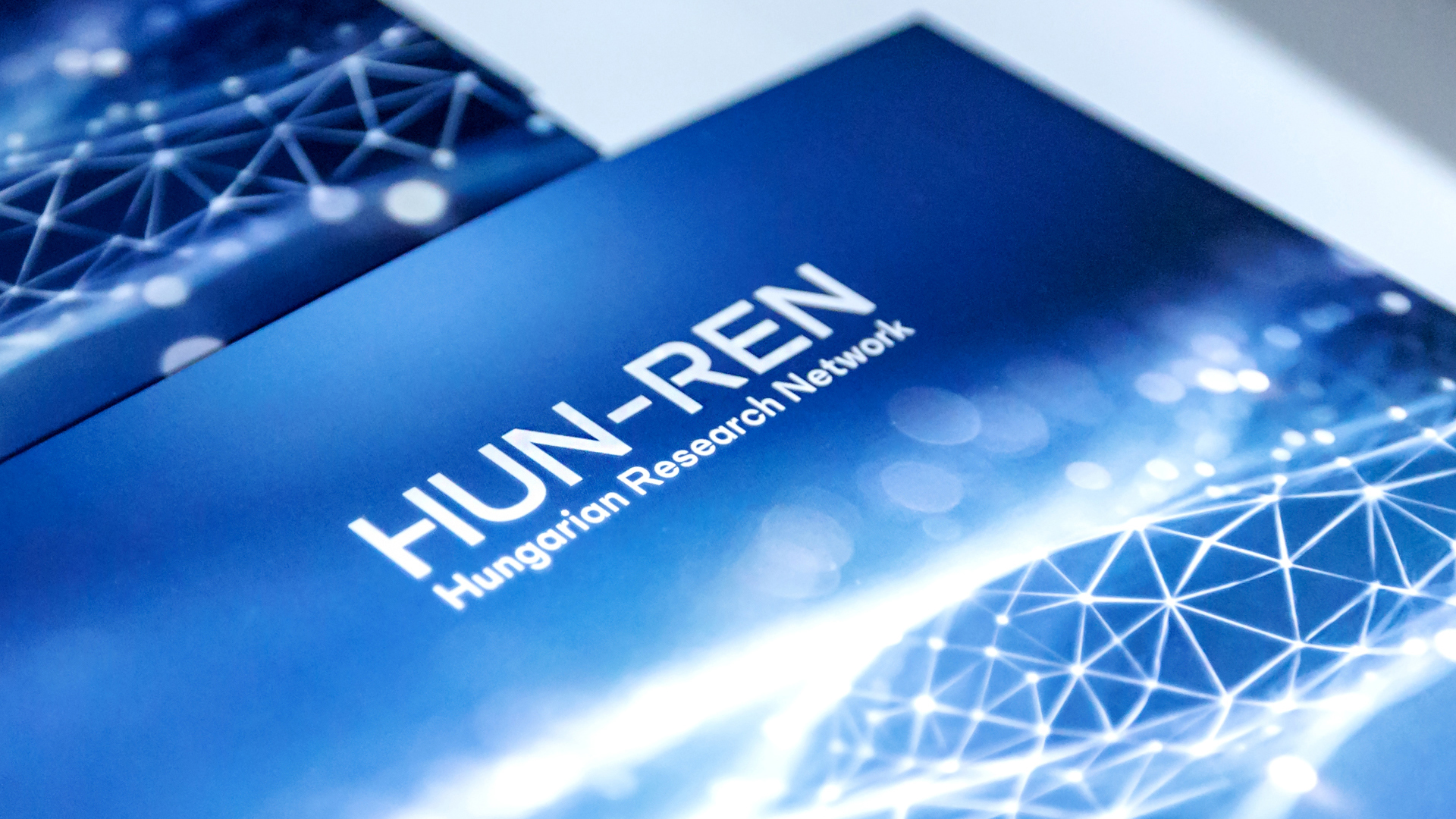Balázs Gulyás: Our Goal is to Elevate HUN-REN to the International Forefront
A structural change is necessary for the research network to become the true flagship of Hungarian science and innovation, capable of competing with the world’s top research institute networks, the President of HUN-REN told Magyar Nemzet. In our conversation with Balázs Gulyás, we discussed Europe’s competitiveness challenges, the mission of HUN-REN, its redefined goals, and the path to achieving them.
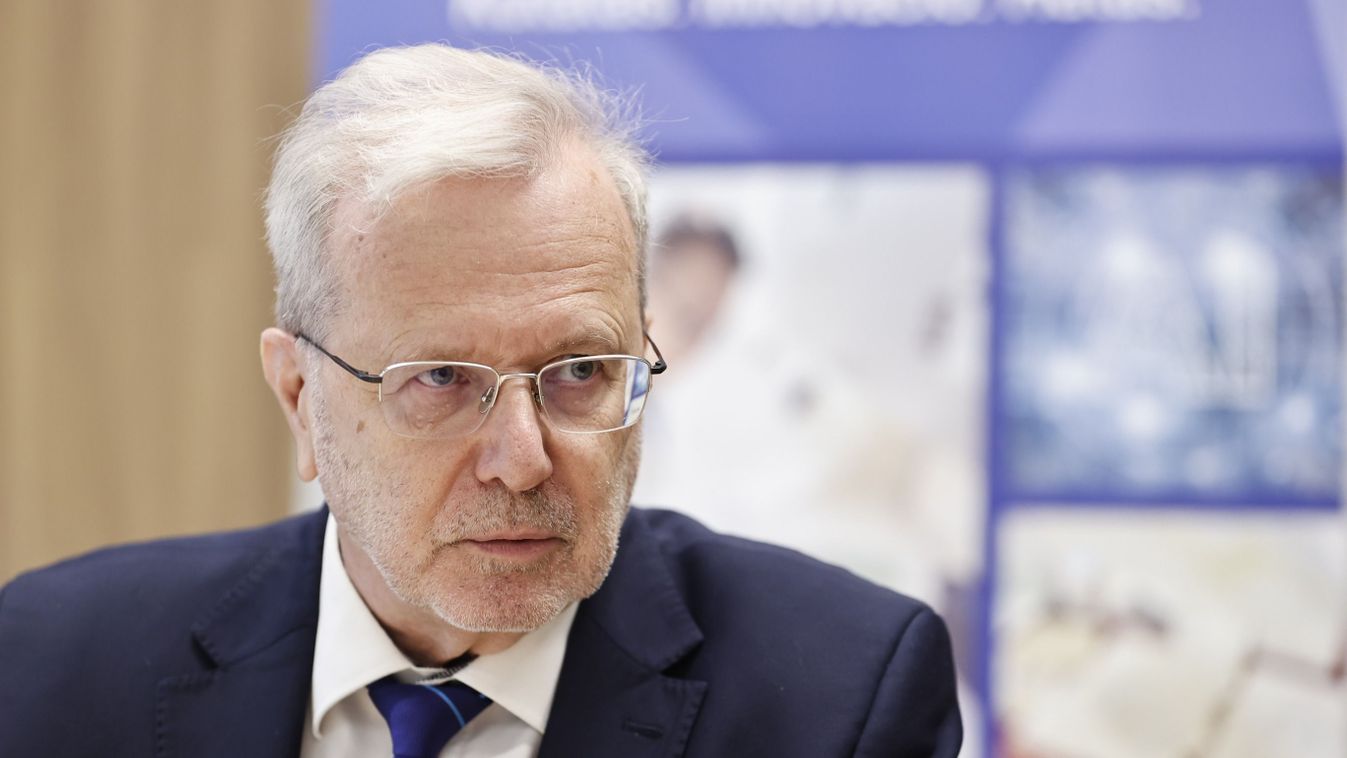
Balázs Gulyás
Photographer: Arpad Kurucz
"The establishment of HUN-REN as an independent, autonomous research network was an important step forward, accompanied by a significant increase in funding: the annual funding of the research institutes more than doubled, from HUF 17 billion to HUF 39 billion. This made it possible to implement a 30% salary increase across the network," said Balázs Gulyás, President of HUN-REN. He added that, although the network has made progress in several areas over the past five years, a breakthrough transformation has yet to be achieved. It is well known that HUN-REN—formerly known as the Eötvös Loránd Research Network—was established in its current form in 2019, when the Government of Hungary reorganised the research institute network, founded in 1949 and overseen by the Hungarian Academy of Sciences, into an independent body with its own governance.
“Today, as we observe the astonishingly rapid increase in global competition—not only in innovation and technology but also in the field of science—and find that Europe is lagging behind in this race, we must seek new solutions to not only maintain our competitive positions but also to strengthen them,” added the President of HUN-REN.
Europe needs a change in mindset and a new research strategy
"Until now, many European countries, including Hungary, have followed a very outdated model. The essence of this model is that researchers come up with good ideas, publish their results, and that’s it—job done. But the world has changed, and with this outdated mindset, Europe is clearly at a competitive disadvantage," said the President of HUN-REN. He referred to the EU's recently published Draghi Report, which clearly shows that Europe’s competitiveness has significantly deteriorated over the past two or three decades.
"Research and science have fallen behind because we've been using an outdated mindset and model, where researchers only do research, engineers handle development, and others produce the products based on the results. This model no longer exists globally, except in Europe, while people around the world are thinking in terms of the whole value chain," said Balázs Gulyás. He stressed the need to move away from a narrow focus on publications or exploratory research and instead adopt an approach that considers the entire value chain. "In this context, a change in mindset is needed—not only in Hungary, but across Europe."
According to the President of HUN-REN, economic actors and members of the scientific community, including researchers, need to be connected to enable more effective collaboration in the future. Additionally, researchers should be freed as much as possible from the shackles of bureaucracy and administration, which consume significant energy that could otherwise be devoted to innovative research.
“Let the researchers do their research. That must be guaranteed,” he added.
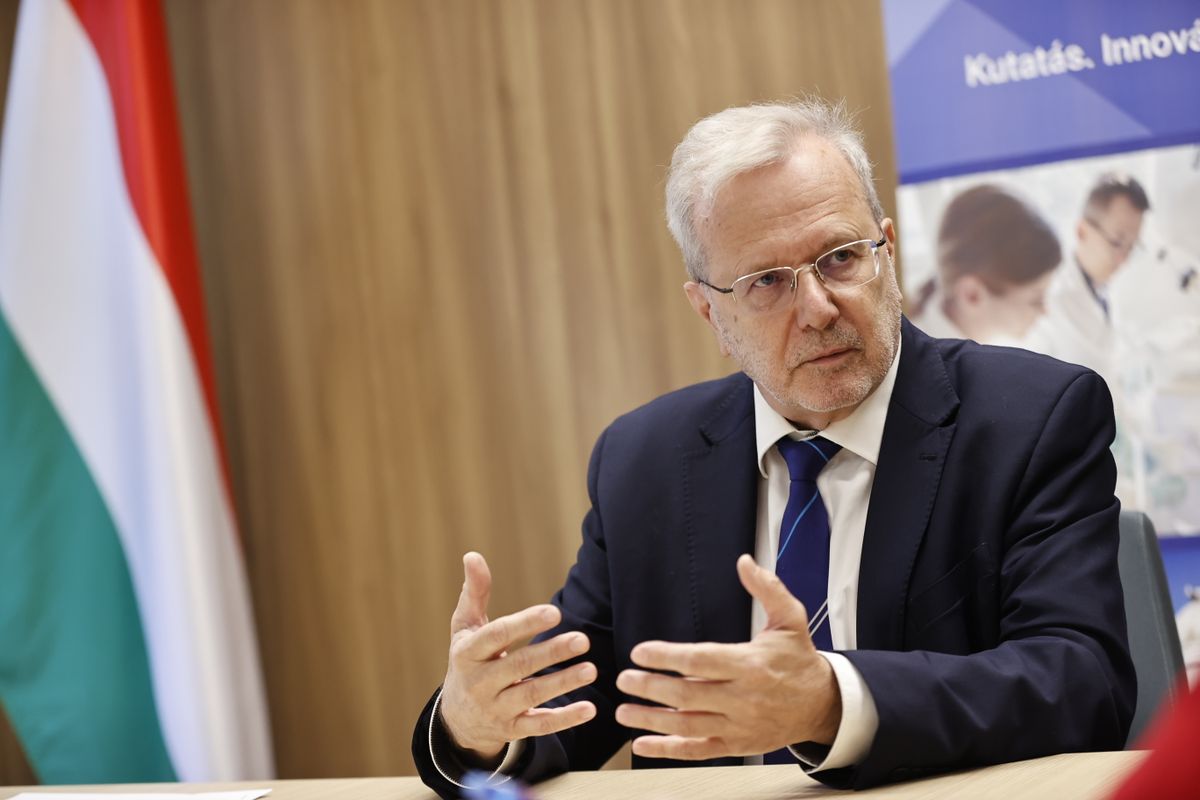
Balázs Gulyás
Photographer: Arpad Kurucz
Review of the network's operations
Over the past nine months, for the first time in the network's history, HUN-REN has undergone a scientific and organisational review to provide the HUN-REN community with an accurate picture of its strengths and challenges.
"When I took over the leadership of HUN-REN a year and a half ago, one of my first tasks was to gain an accurate and reliable understanding of who we are and where we stand in the world of science, compared to scientific research networks operating elsewhere," said Balázs Gulyás. To achieve this, a comprehensive international review and evaluation was launched, involving nearly a hundred distinguished foreign researchers from various scientific fields.
"In addition to the professional review, we also conducted a financial, economic, structural, and innovation assessment, and compared it with twenty similar large international networks. As a result, we found that HUN-REN is an organisation with excellent potential and highly capable researchers, but its current performance still falls significantly short of what could be expected based on the expertise and competence of its researchers," explained the institution's President. He added that HUN-REN has the potential to become one of the world's leading research networks within a few years."
"It’s not that researchers in other countries are more capable—far from it. It’s not that they’re smarter than us, but they organise their research and operations better, and they work within more efficient models. And of course, we shouldn’t forget that, in many cases, they do this with significantly higher funding," Professor Gulyás stressed. According to him, the review clearly shows that significant changes are needed in HUN-REN in the short term, as the current excessive bureaucracy, lack of institutional collaboration within the network, and outdated organisational structures are putting it at a serious competitive disadvantage.
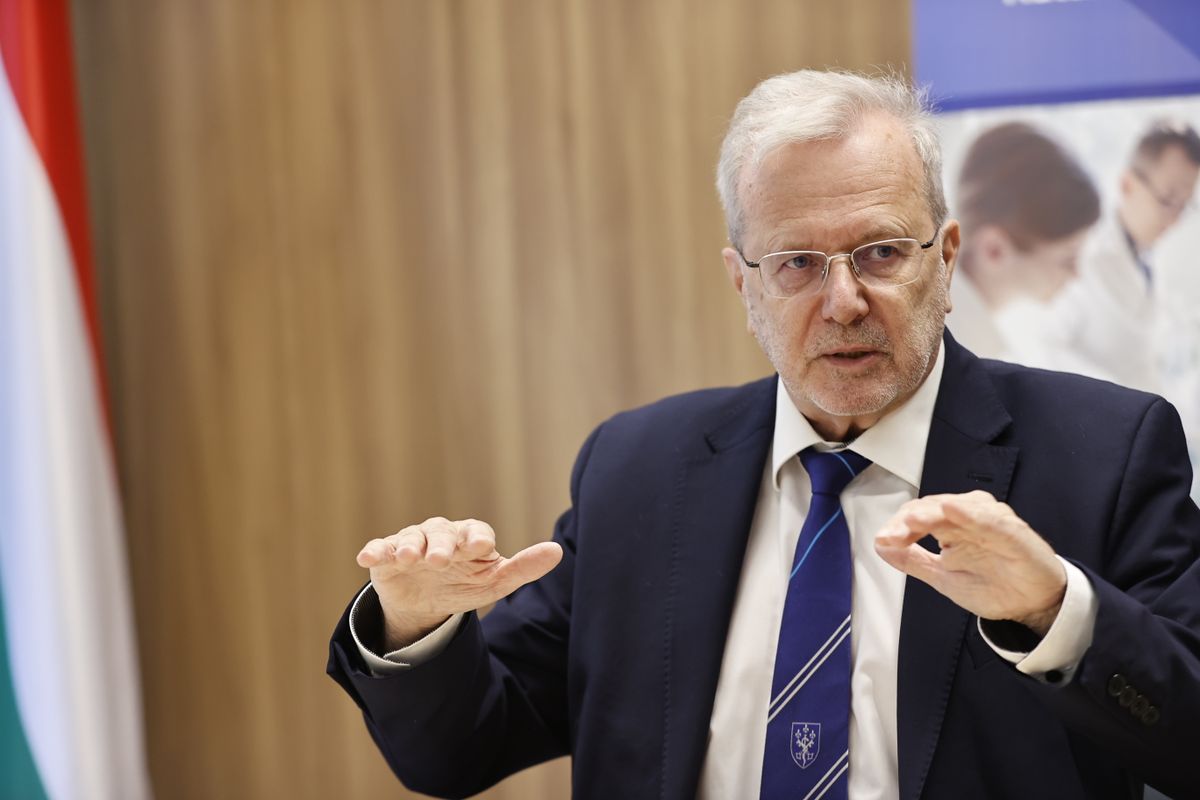
Balázs Gulyás
Photographer: Arpad Kurucz
Addressing the challenges facing the Hungarian community
"We need to clearly articulate the mission of HUN-REN: we must be able to explain to the Hungarian people the value of the research network's activities for them," added Gulyás, who believes that the primary mission of the Hungarian Research Network is to provide solutions to the major challenges facing the Hungarian people.
"Let me give you a few examples. We know that cancer and cardiovascular diseases pose serious challenges to the health of the Hungarian population, as they do almost everywhere in the world. However, with continuous advances in diagnostics, nanotechnology, and robotics, a significant proportion of these diseases can be detected, treated, and cured in a timely manner. In the energy sector, the transition to clean energy production must be achieved without causing energy prices to skyrocket," stressed the President of HUN-REN, who underscored the priority of advancing energy storage solutions. According to Professor Gulyás, it is essential to predict floods and help farmers irrigate their fields as efficiently as possible while using as little water as necessary. Furthermore, linguistics will play a key role in the technological revolution of the next decade, as artificial intelligence is already transforming our daily lives through solutions based on linguistic models.
"These are all real problems that affect people. We must find solutions to these issues because this is what the Hungarian public expects from us, as they provide our funding. That is why we need to strike a balance between curiosity-driven research and research focused on societal challenges, while preserving the freedom of researchers," said the President of HUN-REN, who believes that these issues are all related to our future, as well as the future of the country and society. A publicly funded research network has a duty to use the tools of science to help shape the country's vision for the future and to be an ally of society, stakeholders, and the government in defining and overcoming challenges.
"The freedom of researchers must not be restricted in any way, as they need to find solutions through their own creativity," said Professor Gulyás. He cited Singapore as an example, where the government articulates the major challenges facing the nation in a five-year research plan for the research community. The situation is no different in Europe, he added: "In France, the national research network enters into a five-year agreement with the French government, in which they jointly identify the 40 to 50 topics that will receive two-thirds of the state funding allocated to the CNRS network."
"Learning from the best international examples, HUN-REN also needs a long-term strategic partnership with the government. We need to agree on the most important goals, tasks, and issues, and to achieve this, we must ensure predictable, increasing funding over the long term. It works in Austria, Germany, and France; why can't it work here?" asked the President of HUN-REN.
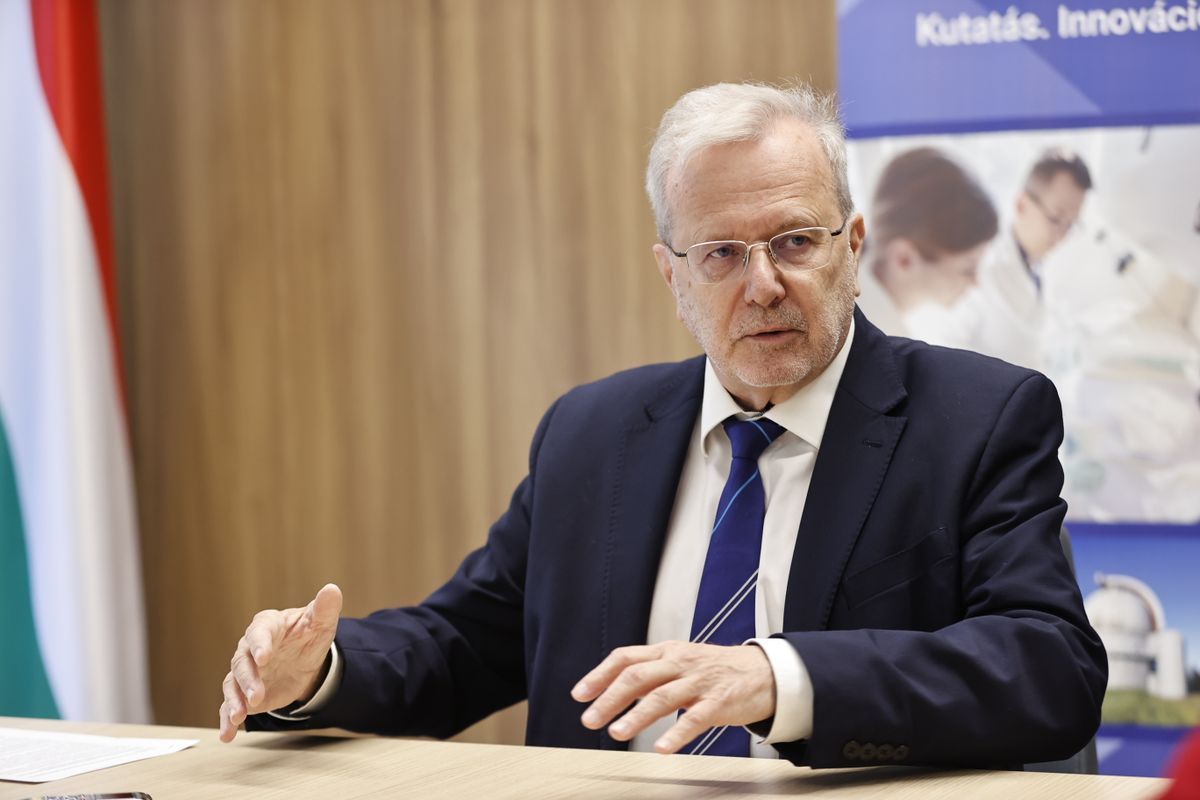
Balázs Gulyás
Photographer: Arpad Kurucz
We need talented young researchers
"With the support of the government, a modern approach to science policy has finally begun to take root in Hungary, similar to that found in the best-performing European countries and Southeast Asian nations. While this approach certainly needs further development, the directions are clear, and we can start moving towards them."
The President of the research network believes that one of the most important questions is how to effectively engage young researchers in the scientific community.
"One of our key objectives is to establish an attractive career model within the research network. It should be worthwhile to join the network, and it should be clear that those who perform exceptionally well will have a secure future within it for the rest of their lives," emphasised Balázs Gulyás, who also noted that it is important for Hungary, as a small country, to open its borders to talented foreign researchers.
"We need to attract talent, not only from Hungarian youth but from all over the world. It must be made clear that we welcome every talented young person who can embrace the values that Hungary has to offer," added the President of HUN-REN, stressing that the Hungarian research and innovation ecosystem already requires thousands of young researchers each year.
More efficient organisational functioning needed
According to the President of HUN-REN, it is also important to unify the network's research support functions, as almost all institutions currently use different administrative systems, which leads to inefficiencies.
"One of our top priorities is to renew, unify, and integrate research support activities into a state-of-the-art organisational management system. Our researchers’ task is to carry out world-class research, while our role in management is to reduce their administrative burden as much as possible and create an efficient and competitive environment," said Balázs Gulyás. He added that a unified organisation operating under flexible conditions is needed to replace the current fragmented institutional system. It is no coincidence that the world’s most successful research networks—such as France’s CNRS, Germany’s Max Planck Society, Spain’s CSIC, Singapore’s A*STAR, Japan’s RIKEN, and South Korea’s KIST—operate as a single legal entity in a unified manner.
Proposals for a more effective operational model
The President of HUN-REN has recently initiated consultations with the government regarding the modernisation of the organisation and its new operational environment.
"We summarised the experiences of the past year and the main directions for the future at our most recent strategy meeting at the end of September, which was attended by all the institute directors and numerous researchers from the HUN-REN network. We also invited Minister Balázs Hankó to this consultation and presented these issues to him. He expressed his openness to the proposals from the HUN-REN community aimed at increasing the effectiveness of the research network," said President Gulyás. He emphasised that in recent days, he had met individually with the leaders of all the research centres and independent research institutes to discuss the goals defined as a result of their joint work and the proposed solutions for achieving these objectives. Meanwhile, the entire research community is being continuously updated on developments.
"It was encouraging to see that there was broad consensus among the Directors-General on the objectives and the key conditions for achieving them. During the consultations, many constructive questions and forward-looking observations were raised, to which we formulated joint responses. With the support of the Directors-General and the mandate of the HUN-REN Governing Board, composed of researchers, I presented our proposals to Balázs Hankó today," said the President of HUN-REN, who has submitted numerous suggestions regarding the future of the HUN-REN community to Balázs Hankó, Minister of Culture and Innovation.
"We should establish the operational framework of HUN-REN in a separate Act on the Hungarian Research Network, which would provide a more predictable, flexible, and effective legal status for the research network than currently exists. We believe that more efficient operations can be achieved through a unified organisational structure, unencumbered by the rigid rules of public finance. I have proposed to the Minister that we enter into a long-term strategic agreement, to be set out in multi-annual funding contracts with significantly increasing funding conditions. In return, we would commit to strongly integrating research topics into our portfolio that address challenges relevant to the Hungarian people," emphasised Balázs Gulyás. He added that the Minister responded positively to the proposals and committed to submitting them to the government to ensure their rapid implementation.
(Source: magyarnemzet.hu)

